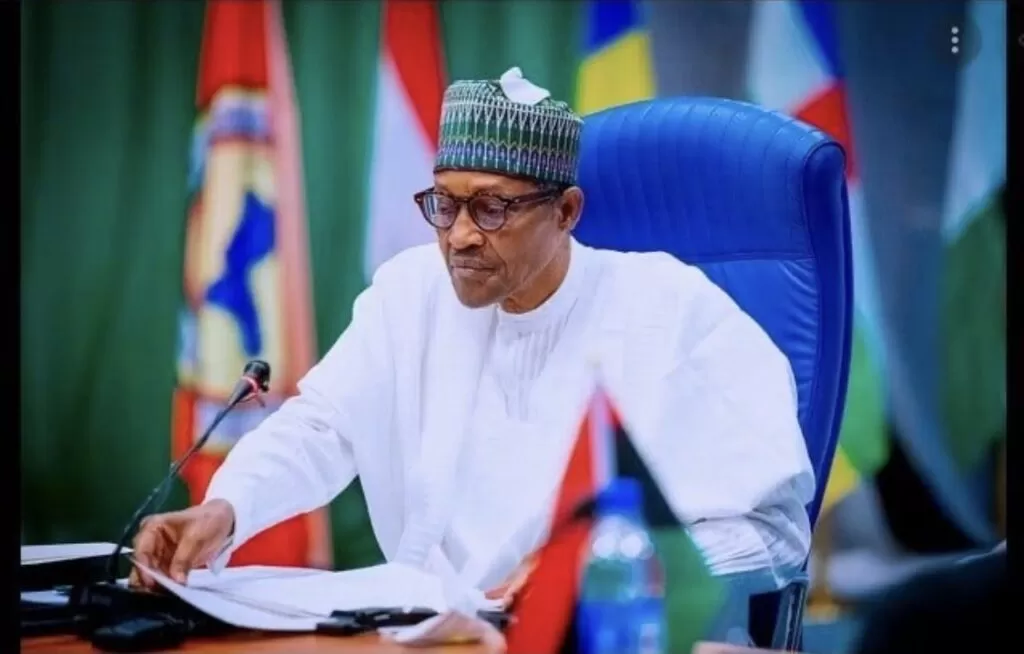President Mohammadu Buhari Signs N21.8tn 2023 Budget: What It Means for Nigerians
President Mohammadu Buhari Signs N21.8tn 2023 Budget: What It Means for Nigerians

The National Assembly has passed the N21.8tn budget for 2023 and President Mohammadu Buhari has just signed it into law.
What does this budget mean for Nigerians?
We’ll take a look at some of the main highlights of the budget and what it means for citizens in terms of jobs, infrastructure, and more.
Overview of President Muhammadu Buhari’s N21.8tn 2023 Budget
President Muhammadu Buhari has finally assented to the N21.8tn budget for 2023. 2022 Budget last year was N16.45tn. The margin between last year budget and this year is approximately N5.65tn
The budget is made up of N9.8tn for recurrent expenditure, N5.5tn for capital expenditure and a borrowing of N6.5tn. This will be Nigeria’s biggest budget yet, and it’s expected to bring a lot of change to the country.
The budget focuses on infrastructure, education, health and agriculture. It also includes a number of incentives to promote private sector investment. President Buhari says the budget will make Nigeria one of the 20 largest economies in the world.
Highlights of the 2023 Budget
As part of his speech, the president highlighted a few points of the budget. He said that it will focus on human capital development, immediate job creation, small businesses and agriculture. He also said that infrastructure development will be a key priority and that the government will continue to invest in social safety nets.
These are all important points that will impact the lives of Nigerians in a positive way. By focusing on human capital development, job creation and agriculture, the government is ensuring that all Nigerians have an opportunity to succeed. And by investing in infrastructure development, they are ensuring that the country is becoming more developed. This will improve the quality of life for all Nigerians.
Implications and Benefits of the Budget
So what does this mean for Nigerians? Let’s take a look at some of the implications and benefits of the budget.
For one, the budget is expected to create nearly one million jobs. It also includes measures that will improve infrastructure and reduce poverty. There are also incentives for businesses to invest in Nigeria, which will help to stimulate the economy.
Most importantly, the budget reflects President Buhari’s commitment to putting the needs of Nigerian citizens first. He has promised to make sure that every Nigerian has access to essential services like education and healthcare. With this budget, he is making good on that promise.
Potential Obstacles and Challenges of the Budget
As with any budget, there are always potential obstacles and challenges involved. The N21.8tn 2023 budget is no different. First off, the public has yet to see the details of where the money is going, so it’s hard to truly understand how it will affect the Nigerian people.
In addition, there is always the possibility of corruption and misallocation of funds. It is essential that the government properly oversees spending to ensure funds are being allocated to the necessary areas and that any abuses of power by officials are avoided.
Finally, there must be a commitment from both parties (the government and citizens alike) to ensure that this budget is successful. The government needs to maintain transparency about where funds are going and engage Nigerians for input on future projects and spending decisions. Citizens need to become more engaged in their local communities and take an active role in supporting projects that will improve their lives.
Possible Ways to Increase Budget Effectiveness
Now that President Mohammadu Buhari has signed the budget, it’s time to start thinking about how to increase its effectiveness. One way is by significantly reducing waste and corruption; this could potentially save hundreds of millions of dollars.
Another route would be to focus on monitoring public funds and strengthening oversight systems. With a well-defined oversight process in place, government spending can be more accurately tracked and held accountable if misused.
It’s also important to consider improving capital investment in infrastructure, such as roads and bridges, which could help boost the economy. Additionally, investing in educational programs can help increase employment opportunities and close the skills gap among Nigerians.
Overall, there are several potential ways to make the most of the budget so that it serves as a tool for real economic growth, leading ultimately to improved quality of life for all Nigerians.
Q&A: What to Expect From the N21.8tn 2023 Budget
If you’re wondering what the N21.8tn 2023 budget will mean for you and other Nigerians, here are some answers to your questions:
– What sectors of the economy will this budget cover? The budget, which is roughly $58 billion U.S., will target several areas including security, infrastructure, healthcare, education, and job creation.
– How will it help create jobs? The focus on infrastructure will bring about more construction jobs and create an environment for more businesses to open up in Nigeria which could lead to additional job opportunities.
– Will it help tackle poverty? The government has set aside funds for various social programs aimed at reducing poverty levels in the country. It remains to be seen if these programs will be successful in tackling the issue of poverty.
– What other benefits should I expect? Other benefits include improved access to basic services such as education and healthcare, as well as increased access to clean water, electricity and better roads. Additionally, it is expected that the investment into infrastructure projects across the country will help boost Nigeria’s economy and create new opportunities for businesses.
Conclusion
So, what does this budget mean for Nigerian citizens?
There are a few things to take away. Firstly, there will be a focus on agriculture, with a goal of increasing production by 25%. This could help to reduce the country’s dependence on imports, and create more jobs. Secondly, the budget includes a number of social welfare programs, which will be aimed at helping the poorest and most vulnerable members of society. Finally, there will be a large investment in infrastructure, which should help to improve the country’s overall economy.
Breaking News








